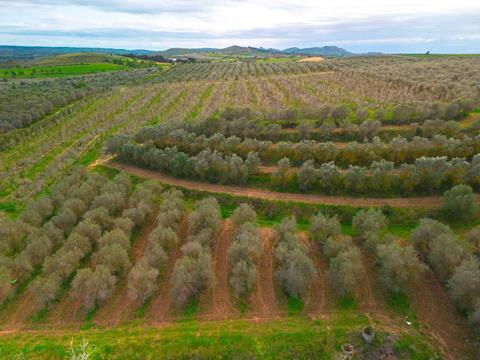The company’s agricultural ecosystem integrates production, livestock farming, and biotechnology

Persea has announced the harvesting of the first Italian organic avocados grown using principles of regenerative agriculture. The company has over 600ha of farms in Sardinia and Calabria and a research and development team in Milan.
“Our production is based on an agricultural model inspired by the principles of sustainability and biodiversity,” the company said. “Our goal is not only to reduce environmental impact, but to restore life to the soil, increase natural fertility, and retain carbon in the soil, generating ecological, economic, and social value.”
Persea’s agricultural ecosystem integrates production, livestock farming, and biotechnology. Inside its avocado orchards, laying hens roam freely following a mobile, rotating grazing system that enriches the soil with organic matter and ensures the production of high-quality eggs.
A soldier fly farm also helps complete the production cycle: the larvae feed the hens, providing them with a complete and balanced diet, while organic waste is transformed into natural fertilizer for their fields and into insect meal for pet food and livestock.
In 2026, the company will launch one of Italy’s first agricultural pyrogasification plants, producing vegetable carbon (biochar) from self-produced woody biomass. The biochar will be used on the land to increase soil fertility, retain rainwater, and store carbon, contributing to the creation of carbon credits from technological removal (tech removal), a certified form of stable CO₂ sequestration that strengthens the system’s overall sustainability.
The Persea project was evaluated using the Regenerative Framework developed by the Regenerative Society Foundation with Nativa and the Fondazione per lo Sviluppo Sostenibile. The tool analyses regenerative performance along five axes: circularity, natural capital, climate, well-being, and education.
“Our evaluation highlighted excellence in circularity (9/10) and natural capital enhancement (8/10), with already measurable results in biodiversity, soil health, and emissions reduction,” Persea said.
Already Regenerative Organic Certified certified and a partner of major players in sustainable supply chain projects, Persea is also a founding member of the Regenerative Society Foundation, along with organisations committed to promoting regenerative economic models.
Later this month, Persea’s founder and CEO, Paolo Frigati, will take part in a panel discussion entitled Food and Agriculture of the Future at the Triennale di Milano, organised by the Regenerative Society Foundation, with the aim of sharing knowledge and tools for the evolution of businesses and society toward a regenerative model.
“For us at Persea, participating in an event of this magnitude represents a fundamental opportunity: a showcase to share our model of integrated regenerative agriculture, perfectly aligned with the dialogue on the food of the future,” Frigati said.
“We want to highlight how essential it is, on the one hand, to nourish the soil, promoting the biodiversity of the microbiota through regenerative practices that make food more nutrient-rich, and on the other, to identify solutions that allow the reuse of food waste, which currently represents a third of the food produced globally.”
To register at the Triennale, visit: https://triennale.org/eventi/regeneration-2030-forum



